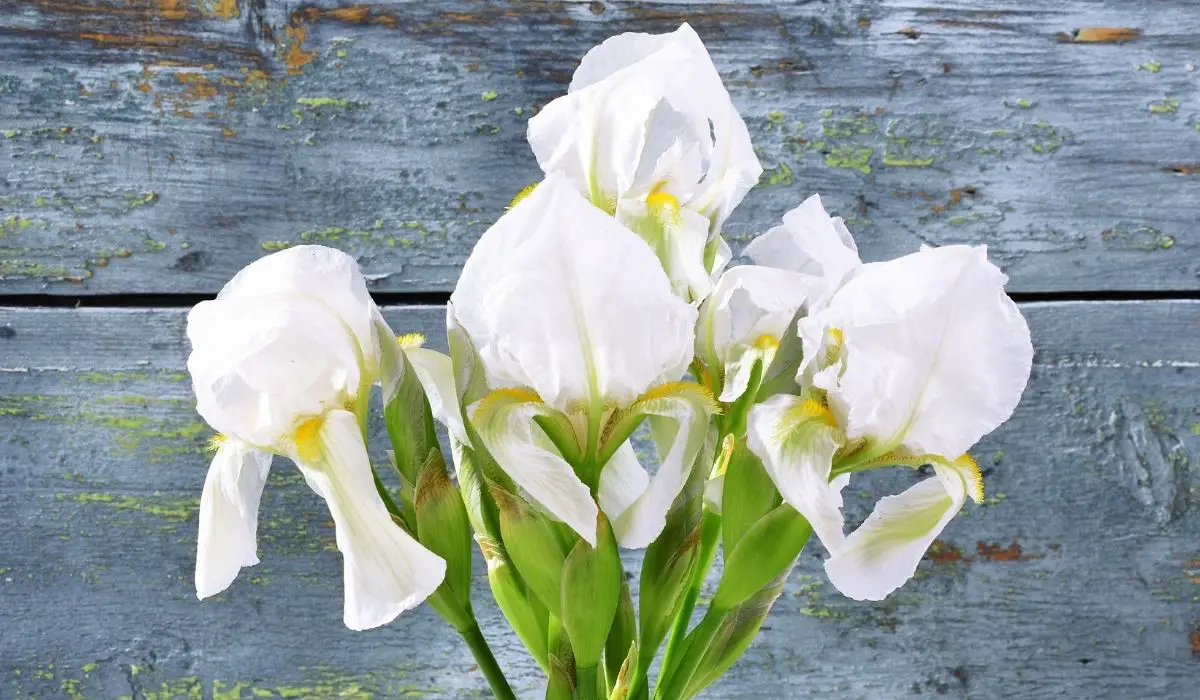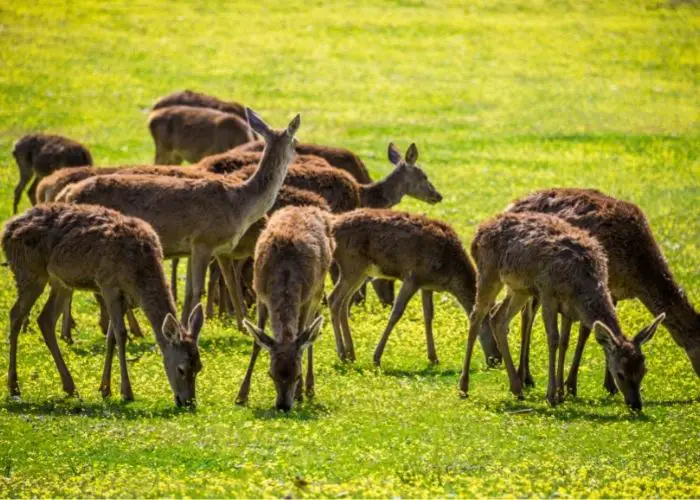Last Updated on July 29, 2023 by Griselda M.
Deer, despite being lovely animals, can be a real menace when it comes to gardening, which is why many gardeners ask are iris deer resistant. Many plants that you find a place for in your garden may end up as food for a deer. If you want to avoid that, you should try planting only deer-resistant plants. In this article, we’ll be taking a closer look at deer-resistant plants, especially irises!
Are Irises Deer Resistant?
Luckily for you, there are a lot of plants that deer simply won’t eat. We call these plants ‘deer resistant’, be it because they’re bad-tasting or toxic.
Iris is one of many deer-resistant plants.
Deer don’t like the way iris tastes, which is why they’ll avoid them. If you’re asking yourself are bearded iris deer resistant or are Dutch iris deer resistant, know that both of these plants are beer resistant. You can also add the Japanese iris to this list. If you’re wondering do deer eat Siberian iris, know that they don’t. All species of iris are deer resistant.
Plants Deer Like to Eat
It’s important to understand that deer will eat basically any plant if they’re hungry. They don’t like iris because it tastes bad to them, but it isn’t toxic, so they’ll eat it if they must. After all, deer are just animals trying to survive. However, there are a few plant species that are very attractive to deer, and you should avoid planting these in your garden unless you don’t want to attract a whole herd!
Some of these plants are arborvitae trees and the fir, but other narrow-leafed evergreens. This also applies to Hosta plants and daylilies.
Plants Deer Dislike
The main reason deer will stay away from a plant is toxicity! If a plant is poisonous, deer won’t eat it. Another reason deer will stay away from is taste – they prefer plants that taste good to them. This is, actually, why they won’t eat iris – they don’t taste good! Lastly, and this one is sort of odd – deer don’t like plants that let off a strong scent! They avoid them for the same reason people are attracted to them!
Daffodils and poppies, for example, are poisonous to deer. This doesn’t necessarily mean that they’ll die if they eat them, but they’ll certainly feel nauseous and uncomfortable.
The bearded iris is a fine example of a plant that not only tastes bad, but gives off a strong scent, and is therefore unattractive to deer. They also don’t like lavender and peonies for the same reason – they’re smelly to them.
They also won’t eat anything that pricks them, so cacti are out of the question for them, as well as lamb’s ear.
It’s important to note that, despite all these countermeasures, deer will eat anything when they’re hungry. Your iris might not be appealing to them, but if the animal is starving, it’s definitely going to eat some. It’s different when it comes to toxic plants. Deer will try to avoid eating toxic plants when possible, even when they’re hungry. If it’s a matter of life and death, though – deer will eat anything.
Building A Deer Resistant Garden
The most obvious solution would be installing a fence! If installing a 7-foot-tall fence is an option for you, then you should definitely take it. Deer won’t be able to jump over it and your garden will be perfectly safe from them. However, this can often be expensive, and if you’re looking for a cheaper and more natural solution, then you can use plants for your protection!
Try mixing resistant plants with regular plants. This will protect plants that deer would normally eat, because they’re going to bite down on an iris instead of on a tulip eventually, and from that point onwards they’ll avoid eating tulips. You can apply this sort of strategy to all your plants. This means that you can protect your tomatoes and your cucumbers, as well, because those vegetables are absolute treats for deer.
Additionally, your plants are most vulnerable in the first few weeks of their lives. When you’ve just planted them, they’re very rich in nitrogen. This is when the local deer are going to be especially aggressive, given the opportunity, to eat your plants.
Deer Will Avoid People
This is a very important fact to keep in mind when you’re protecting your garden against deer. If you move the more appealing plants closer to your home, deer are less likely to eat them. These animals are smart enough to recognize a human, which is why installing a scarecrow might also spook them!
Use A Motion – Activated Sprinkler
We only recommend using this if you’re absolutely sure it won’t harm your plants, but motion-activated sprinklers are sure to scare the deer off! Most of these sprinklers work with infrared technology, meaning that deer will activate them during both night and day. If a deer wanders into your garden and all of a sudden a pipe bursts out of the ground and starts shooting water everywhere – they’ll surely run away.
Use Deer Repellants
Deer repellants are very effective products. They work with scent and taste – the deer trying to hold a feast in your garden will smell it and it will likely turn around and leave. If it continues to invade your garden, however, the repellant tastes like garlic, which deer don’t like! Just make sure that you purchase a tried-out repellant!
In conclusion, deer don’t like any iris species! These plants taste bad to them – they will eat them if they’re starving, but they prefer to avoid them. There are also a lot of other plants that deer won’t eat. Some plants are toxic to them, others taste bad, while some have an uncomfortable texture and it’s painful to eat them. If you’re looking to deer-proof your garden, combine deer-resistant plants with plants that deer will eat.
It’s also smart to use manmade solutions, like fences, deer repellants, and scarecrows! Deer also avoid dogs, so that’s always an option!
Find out When Do Hyacinths Bloom?




